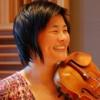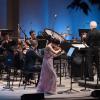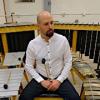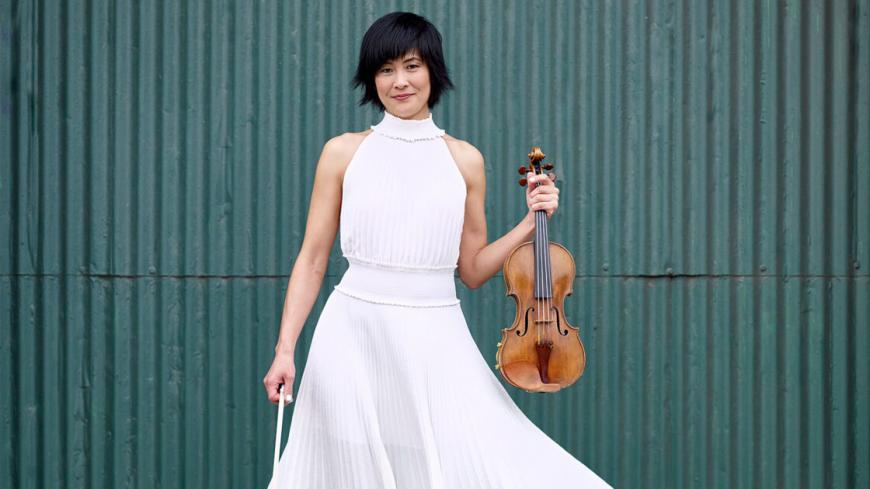
There are countless tales of musicians who were whacked hard by the COVID-19 pandemic, but did anyone think that big-name classical music artists wouldn’t be affected, too? Tell that to star violinist Jennifer Koh, who saw all of her gigs evaporate literally overnight in March 2020 when the shutdowns started. Things got so bad that she had to rely on food stamps, which drew shocked attention in the classical world when The New York Times revealed it.
Yet Koh is nothing if not resilient and self-starting. She conceived a project called Alone Together, in which she asked several of her composer friends to write short solo violin pieces for her, gratis, and then to appoint young “emerging” composers to write some more for a small “micro-commission” fee. Thirty-nine pieces emerged, and all are gathered on a digital album on the Cedille label.
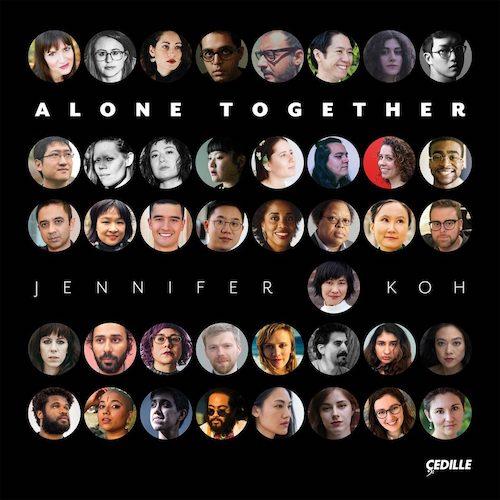
As you would expect from a collection of 39 different composers, there is some diversity in their responses to Koh’s pandemic project. Yet the overall feeling through the 97 minutes of music is that of bleakness, of struggling to say something, anything, in the face of isolation, loneliness, and the absence of concert life in New York City, where many of the composers — and Koh herself — reside.
The booklet included with my copy (a limited number of physical CD-Rs were produced for promotional purposes) includes essays by each composer, many of which are about their experiences and feelings during the pandemic. In several cases, the essays are admittedly more absorbing and revealing than the music, telling us how paralyzing the pandemic has been to their muses. While many people feel obligated to use the endless days of down time to double down on existing projects or to seek new creative directions, these essays suggest that this is often not the case. Du Yun’s “essay” for Windowsills consists of just the following, and I quote: “( ).” I can’t begin to guess what that means.
I won’t burden the reader with a rundown on each and every piece — none longer than 5:19 and none shorter than 47 seconds — but here are several that grabbed my attention:
Shayna Dunkelman’s Afterglow stars off with a simulation of a siren indicating the ambulances driving past her New York apartment; learning how to write for violin was her particular pandemic project. Wang Lu imitates a siren, too — a two-note variety — in Hover and Recede, a desolate opening to the album.
Cassie Wieland’s shiner is a playful little piece in pizzicato and short bowed bursts. Katherine Balch’s Cleaning asks Koh merely to sanitize her fiddle by wiping it down with latex gloves — a sad little pandemic piece if there ever was one.
George Lewis’s pandemic commission Un petit brouillard cérébral consists of various slithering fibrillations. It sounds like he had trouble getting on track, as per the description in his essay — “…what it was like to be swimming around in the brain fog, fighting for focus.”
Andrew Norman waxes quizzical in Turns of Phrase, and Vijay Iyer is in a bleak mood in for violin alone.
David Serkin Ludwig’s All the Rage is a propulsive, feverish perpetuo moto that culminates in a piercing scream of cathartic anger by Koh. Somebody had to express it.
The only pieces with anything backing Koh’s lonely violin are Darian Donovan Thomas’s Art | Nat, which has an electronic score dancing between the speakers under her rapid arpeggios and a spoken text; and Tomás Gueglio-Saccone’s Nocturno Lamarque, which has a faint, steadily rising microtonal sine wave.
Thomas Kotcheff’s vacuum packed quotes and mangles Tchaikovsky’s Violin Concerto (his word is “bastardization”) in an old-school virtuoso display for Koh. And the collection closes with Kati Agócs’s Thirst and Quenching, a pensive meditation that fades away on a high pitch.


